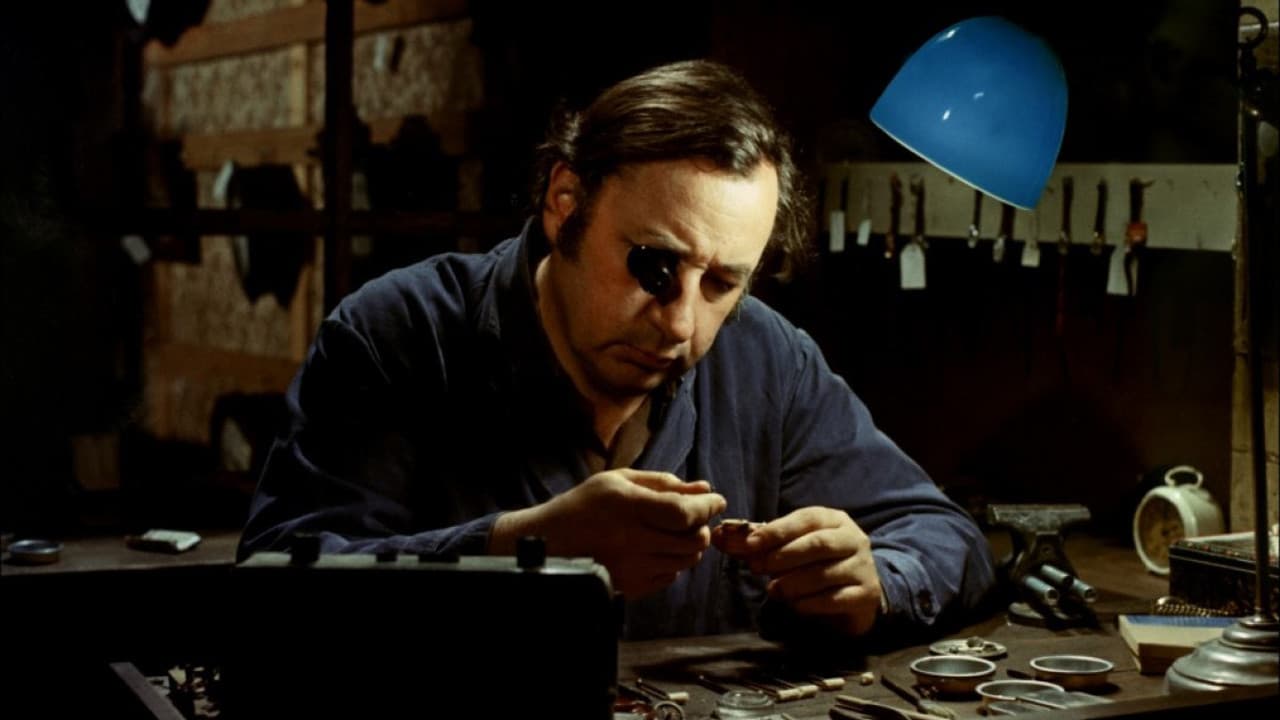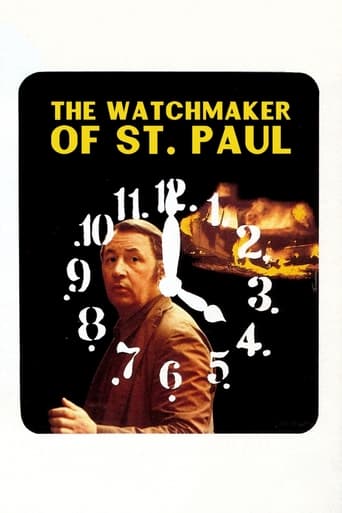ReaderKenka
Let's be realistic.
Phonearl
Good start, but then it gets ruined
Sameer Callahan
It really made me laugh, but for some moments I was tearing up because I could relate so much.
Orla Zuniga
It is interesting even when nothing much happens, which is for most of its 3-hour running time. Read full review
MartinHafer
I did not love this movie, but it was better than average--particularly because of its originality. However, to an American audience, it may be difficult to relate to the French justice system circa 1974. At first, the star of the movie, Philippe Noiret, is a rather apolitical man who seems quite ordinary. When the police inform them that his son has murdered someone, he initially does pretty much what the police ask. When the investigating officer tries to get close to Philippe (sort of "buddy buddy"-like), he allows him. However, through the course of the film, Philippe begins to see the police as the enemy and he rebuffs these attempts by the police to be friendly. The problem for me is WHO is right? Were the police at this point of time quick to violate human rights or manipulate the families of the accused? I really didn't know if Philippe was having his eyes opened to the truth or if he just learned to identify with and excuse evil. This would NOT pose a problem to a French audience but for those not familiar with the French legal system it seemed confusing--was Philippe a good man or a good man going bad? As far as the acting and pacing is concerned, this is a good flick.
Pehlevan
In spite of watching that movie for the sake of great director Bertrand Tavernier, I came across a purely eccentric and impressive masterpiece. Philipe Noiret ,my favorite actor in il Postino and Cinemo Paradiso, performs his boundary limits. Bertrand Tavernier's left glass a little ruins films from the political concern. However this does not reduce the total film quality. Tavernier's camera focuses on an ordinary widow clockmaker surrounding with the high tension political turmoil in Lyon early 1970s. Noiret's son is accused of a factory boss murder and runaway. Between police and his son, Noiret tries to find the real reason that led the murder. But this is a neither action nor criminal movie. Pure relationship between father and son is the core theme of the film. All things considered I strongly recommend this impressive and emotional movie for people to have some idea about the political atmosphere of early 1970s.
taylor9885
Based on a Simenon novel (and probably much finer artistically than the source), this film reposes mainly on ths sturdy shoulders of Philippe Noiret, who is magnificent as a middle-aged tradesman who is trying to come to terms with the fact his son has killed a man. He tries to keep a level head as the political-media frenzy explodes all around him; a very hard thing to do in France, where the political affiliations of killer and victim are endlessly discussed in every cafe, every home.Jean Rochefort plays the inspector, a frustrated idealist turned sour by the realization that he has found his level in the justice system and will not rise above it. The wary relationship between cop and father is the basis of the film--the son sppears only in the brief scene on the plane, a masterpiece of emotional restraint.
ieaun
The star of this film is the city of Lyons, which looks absolutely magnificent. The problem with the film is that it rambles along until the son is finally captured and tried, and is reconciled with his father. The father doesn't seem to know what's going on at the start or how he feels about his son, before eventually deciding that he wants him to escape. But the film just seems to drift from one encounter to another, with the policeman, with his friend, with the press, with his son's girlfriend's workmates, with the woman who helped bring his son up. Perhaps the director is trying to show what it's like to be waiting for news in such a situation and the sense of not being able to do anything about it. Philippe Noiret and Jean Rochefort are both excellent in portraying sympathetic characters. The son and girlfriend are also portrayed as sympathetic - although we are never explicitly told why they committed the murder, their victim is shown to have been a nasty piece of work. The almost documentary style is in contrast to the cinematic style of other Simenon adaptations such as "Monsieur Hire" and "The Hatter's Ghost". No intrusive music as in "Monsieur Hire" for example.

